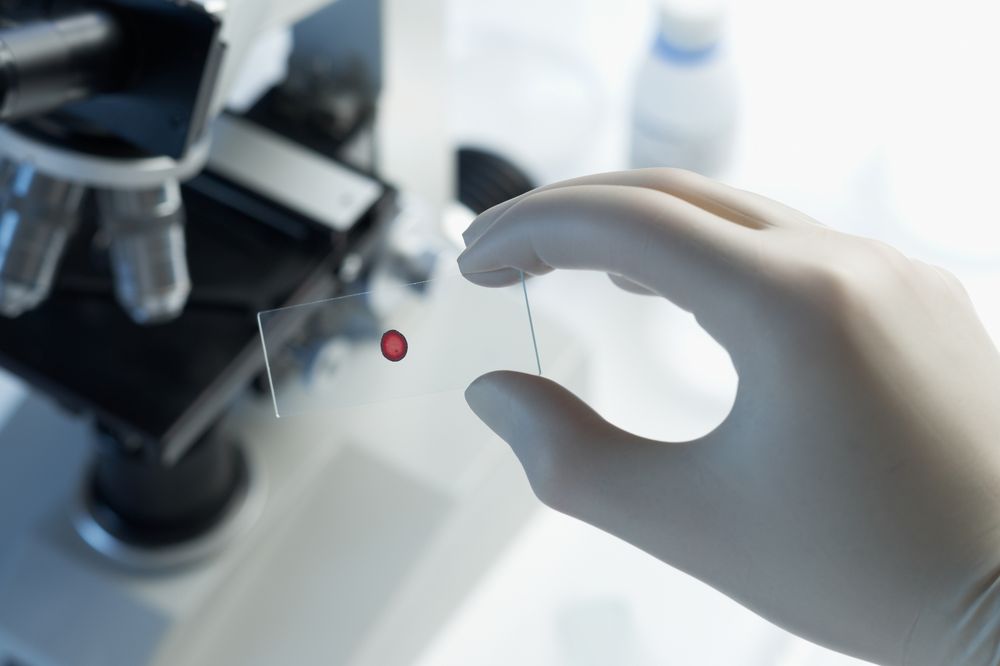
(Vienna, 19 December 2018) Cold agglutinins are IgM antibodies in the blood, which are usually only activated at lower temperatures. They cause so-called Cold Agglutinin Disease, a rare autoimmune disease affecting one in 150,000 people. In this disease, the immune system produces antibodies against its own blood cells, which are then "eaten up" or broken down by the liver. Researchers from MedUni Vienna led a Phase 1b study of a new treatment for this rare blood disorder, and results published today in the leading journal Blood, showed that this novel therapeutic option may allow cold agglutinin disease to be treated like a chronic disease.
Cold agglutinin disease is a subtype of autoimmune haemolytic anaemia and is characterised by the presence of cold-reacting autoantibodies. These can activate the complement system – part of the innate immune system, which has cell destroying properties, among others – causing part of the complement to dock unto the blood cell and "mark" it, as it were, for destruction by the phagocytes in the liver. "This means that the red blood cells are seen as foreign bodies, even though they are not, and consequently destroyed," explains study author Bernd Jilma from MedUni Vienna's Department of Clinical Pharmacology. The researchers were able to show that this self-destructive mechanism can be stopped by a new monoclonal antibody (sutimlimab), administered once every two weeks. This antibody blocks the triggering complement molecule. "When the patient received an infusion of the antibody, destruction of the red blood cells stops within a day – and remains suppressed as long as the antibody is given regularly. This means we can even help patients who need regular blood transfusions and have failed to respond to other treatments. However, ongoing treatment is necessary, because this therapy does not cure the disease," stresses Jilma. Moreover: "And what is all the more gratifying is that this active agent is not associated with any relevant adverse effects." These data are the result of a joint project conducted by the Department of Clinical Pharmacology and Jilma's working group, together with the Division of Hematology and Hemostaseology of the Department of Medicine I (Head: Ulrich Jäger) and in collaboration with and supported by Bioverativ, a Sanofi company. Cold agglutinin disease affects between 40 and 50 people in AustriaCold agglutinin disease is classed as a "rare disease" and affects one in 150,000 people. Possible symptoms are a bluish, and to some extent painful, discoloration of any areas of skin exposed to the cold, plus dark urine. Symptoms can be triggered or aggravated by a cold environment or the presence of other infectious diseases – often in conjunction with bone marrow diseases. The disease can manifest itself suddenly in the form of anaemia or haemoglobinuria (excretion of red blood pigment via the kidneys). According to Jilma, around 40 to 50 people in Austria are affected by the disease.
Service: Blood
„Inhibition of Complement C1s Improves Severe Hemolytic Anemia in Cold Agglutinin
Disease: A First-in-Human Trial.“ Ulrich Jäger, Shirley D’Sa, Christian Schörgenhofer, Johann Bartko, Ulla Derhaschnig, Christian Sillaber, Petra Jilma-Stohlawetz, Michael Fillitz, Thomas Schenk, Gary Patou, Sandip Panicker, Graham C. Parry, James C. Gilbert and Bernd Jilma. Blood 2018 :blood-2018-06-856930; DOI: https://doi.org/10.1182/blood-2018-06-856930